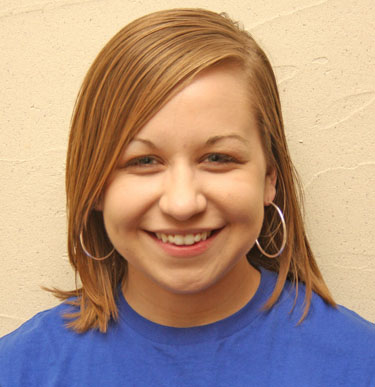Allegiance emphasizes high ideals, not results

Nicole Stejskal – Editor in Chief of the Review print edition
November 18, 2009
As much as I hate to admit it, I’ve never been much of a history buff. Sure, it’s fascinating for those who enjoy looking into the past, but I’ve always been a forward thinker, constantly considering what the future might hold for myself and the world around me.
So, as one might imagine, when it comes to looking at historical documents and events and determining their meaning, I’m not exactly the philosophical thinker to turn to.
However, I happened to find someone who provides a new argument about the past that may change minds in the future.
I was browsing CNN’s Web site, checking out the latest news, when I saw a video titled “Boy won’t pledge allegiance.” In my mind, I immediately thought, “Great. Another person is making national headlines in a dispute against the ‘one nation, under God’ statement in the Pledge of Allegiance. Haven’t we heard this enough already?”
Nevertheless, I decided to give the video a shot, wondering how the situation would be different this time around.
To my surprise, the story didn’t involve God at all. Will Phillips, a 10-year-old boy from Arkansas, didn’t sit when the Pledge of Allegiance was recited because of his religious beliefs – he sat because of his beliefs in fair rights for all.
According to Phillips, the final words of the pledge, “with liberty and justice for all,” are a fallacy in today’s society. With all of the racism, sexism and prejudice against gays and lesbians that still exist, Phillips believes that our country is not living up to the pledge’s ideals. He came to this conclusion after analyzing the pledge’s meaning, hoping one day that he’ll become a lawyer.
While Phillips is probably not the first person to recognize the lack of truth in the pledge, he is most certainly the first to bring it to the nation’s attention. In his interview with CNN, Phillips said, “I think [gays and lesbians] should have the rights all people should, and I’m not going to swear that they do.” He may only be half the age of our generation, but he makes twice the argument that most of us could.
Despite the opposition Phillips has faced from fellow students, community members and citizens across the nation, he continues to stand up (or rather, sit down) for what he believes in, a trait that all too often is condoned in our society. Although progress has been made in creating equal rights for all people, we still have a long way to go.
If we ever hope to establish equality in our society, we need more people like Phillips to stand up for what they believe in. While it may require us to take a seat and let the absence of our voices be heard, it is the only way to move toward liberty and justice for all.


